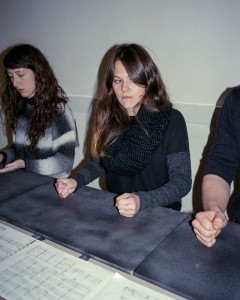[contextly_auto_sidebar id=”mlSS19YuFk3QKrfaMWrCwsg4CEXPYwEf”]
This is an important Kickstarter project, which needs to be funding. Luckily, they’re close to their goal. But every little bit helps! It’s a British project, and I haven’t looked into whether it can accept funding in dollars, but even if not, it’s something important to know about it.
What is it? I’m going to give you the complete email I received from Gabriel Prokofiev, the British composer, producer of electronic dance music, and creator of both the Nonclassical record label and the London club nights bearing the same name. He’s an important figure on the London alternative classical scene. (The link I gave goes to Wikipedia. Here’s his own site.)
What he promoted to me (and many others) was a book on that scene, something that vitally needs to exist. It’s a mantra of mine: so many changes sweeping through the classical music world, and so few of them documented anywhere. London is one of the key centers for classical music change, and so a book about what’s happening there…it’s worth its weight in gold. Someone should do one about New York. And other cities!
 Here’s what he wants us to help with:
Here’s what he wants us to help with:
Dear friends, colleagues,
As you may know, I’ve been putting on the NONCLASSICAL classical club-nights for 10 years now, and during that time I’ve seen a really vibrant alternative classical scene develop and grow in London. For the first time this scene is being documented in a brilliant new Photobook. I’m writing to encourage you to check out the KICKSTARTER campaign which is funding the printing of the book. Here’s some more info:
‘We Break Strings’
Is a book of photos, interviews & essays charting the rise of the alternative classical music scene in London.
This 144-page, high-quality book is the first time that the contemporary classical scene in London has been properly investigated in a single printed document. Photographer Dimitri Djuric’s photos give a unique insight into the London scene, and writer/blogger Thom Andrewes remarkably thoughtful and thorough text investigates the social, cultural and aesthetic implications of the scene.
Thom spent months interviewing many of the people involved, and Dimitri spent over 2 years photographing events. Thom was very careful to get a really balanced and wide view of the scene; so that the book reveals the amazing diversity of approaches that are been taken to presenting classical music in London over the last 10 years.
Please visit the kickstarted page to find out more about the project & support it:
https://www.kickstarter.com/projects/909891721/we-break-strings-the-alternative-classical-scene-i
Classical music rarely gets the printed visual representation that other genres of music & art-forms get, and having witnessed how much this ‘alternative’ classical scene has grown over the last ten years – it feels like the right time to share this growing new movement in contemporary classical music in a visual form, and I think this book will really help get more people interested in the music & the scene.
We have launched the Kickstarter project in order to fund the printing of the book. But, we’ve been very generous with the Kickstarter ‘rewards’, and on Kickstarter you can actually buy the book in advance for less that it will cost once it is officially released in November. But, you are welcome to donate more to the cause if you wish, and we also have bigger rewards such as exclusive prints from the book, and guest-passes to Nonclassical events…
Please pass on this email & the kickstarter link to everyone you know – it’s a unique chance to discover more about a significant new development in classical music – and we still need to raise much more funds to cover all the costs.
Many thanks for your support,
Gabriel
I’m late getting to this, but why don’t we push this project over the top?
promoter of club nights under the name Nonclassical (and, as he might be tired of reading, grandson of the composer we all know).

I see that the project is now fully funded. Meanwhile, I thought I’d point out that either one’s credit card company or Amazon (which handles Kickstarter payments in return for a percentage of the donations) is able to convert the charge to one’s home currency, just as when purchasing something or making an ATM withdrawl in another country.